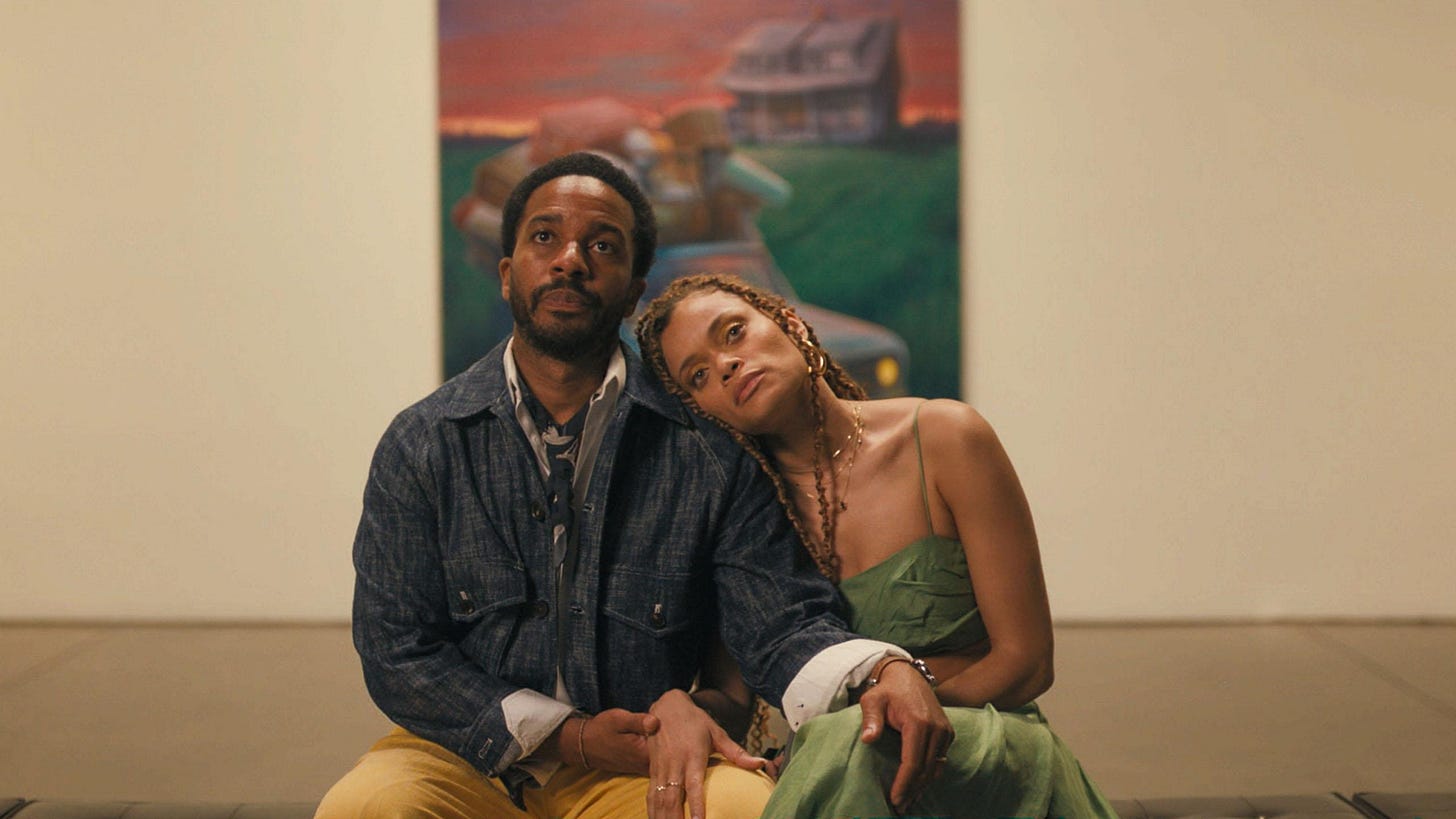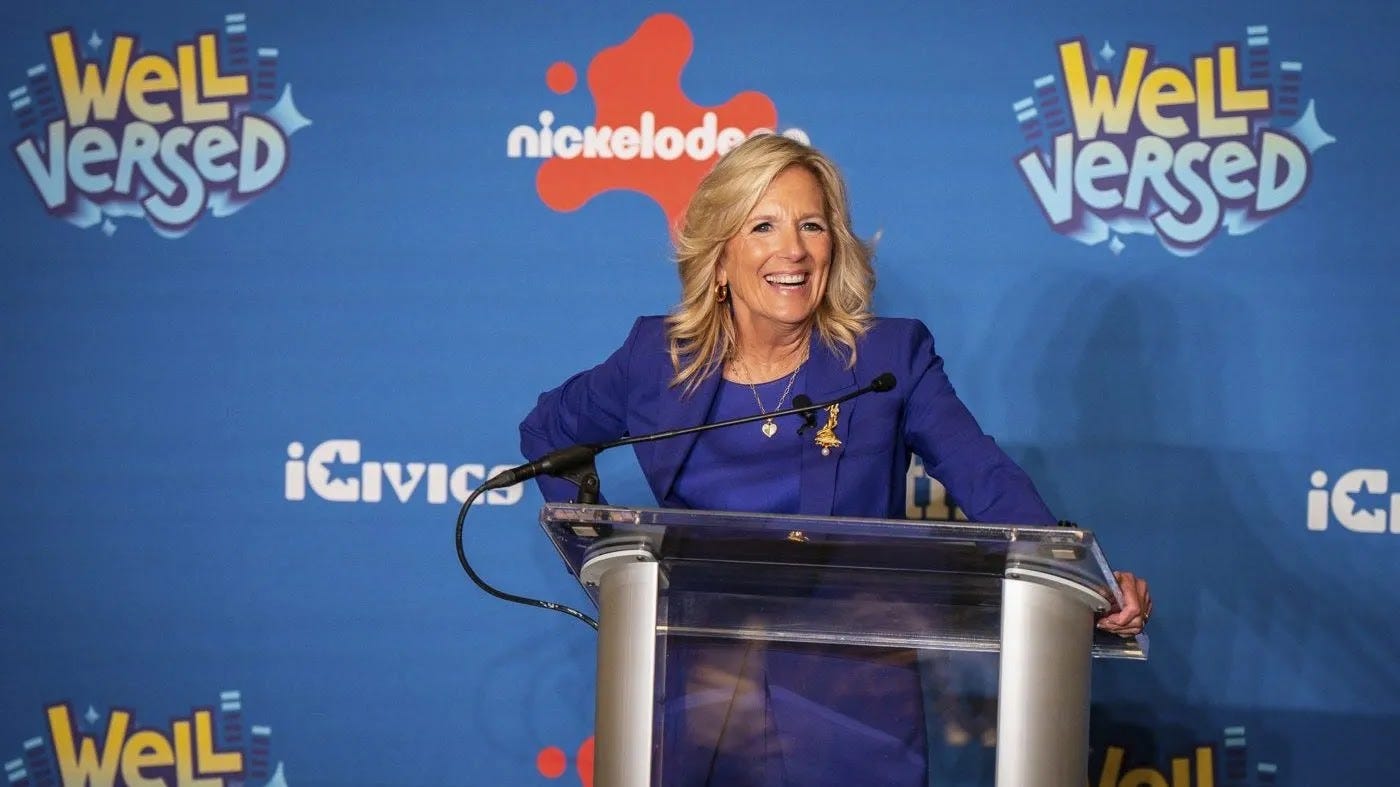Civic Entertainment
Why storytelling is our most powerful untapped tool
Two Saturdays ago, I woke up early and walked through a sleepy, snowy Park City to find coffee.
Later that morning, I listened to a panel on harnessing the power of storytelling to bridge divides and foster social impact.
A couple hours later, I watched Exhibiting Forgiveness, a movie that threads together so many of the things that really matter to me and a visual reminder that art is powerful connective tissue.
Storytelling is an undeniable trojan horse for learning and understanding. I left Sundance feeling that civic entertainment isn’t just a pipe dream.
But don’t take it from me!
Most people don’t know this, but Justice Sandra Day O’Connor — the first female Supreme Court justice — was a pioneer of civic entertainment. She retired from the Supreme Court in 2006 with a dream of reimagining civic education, but she also understood that the idea of making civics “fun” is a tall order. And so in 2009, Justice O’Connor started iCivics, a nonprofit civic education organization focused on reenergizing educators and empowering young people to look at civics in a different way. iCivics pioneered educational games that don’t feel like learning.
Last year, iCivics partnered with Nickelodeon and Dr. Jill Biden to create a series of original pop music videos that makes learning about things like the branches of government and the Bill of Rights catchy and fun. And it’s working.
We all need more content like Well Versed. Sometimes when I have to start working early, I pop on a music video while my son eats breakfast and tell myself we’re all starting our day with civics (!!!).
And TODAY, we’re getting advice from the actual source. Louise Dubé, the Executive Director of iCivics, has spent the last decade making Justice O’Connor’s dream a reality - and we’re all the beneficiaries of her incredible work.
More from Louise below.
In 2012, President Obama was running for re-election, my youngest son was in 4th grade, and Mrs. Brown assigned Win the White House, an iCivics game, as homework. My son played the game—after some debate about whether the game was really homework—and told me that all of school should be like iCivics. He was hooked on civics, and that has lasted into adulthood.
As a result, as the old commercial goes, I bought the company. That is, I became executive director of iCivics in 2014. Ten years later, I’ve learned a few things about how children get prepared and engaged in our communities and with democracy.
As parents, we know the importance of pro-social skill development: taking turns, sharing, and listening, among others. These skills help kids function in our families and with friends.
A civic lens on those skills is to place them in the context of a community beyond the family, i.e. the school, town/neighborhood, or county. We can introduce the concepts of fairness, authority, compromise, rules, and how laws help us resolve conflicts. We can develop the vocabulary for concepts they understand instinctively.
To help with young children. Nickelodeon (with iCivics as its educational partner) created the Well Versed series for young kids (ages 4–12). Each music video blends catchy music and civics concepts to foster children’s natural curiosity about how the world around them works.
The team who developed the series included experts in civics and early childhood education, lyricists, musicians, and animators to deliver something educational that doesn’t feel like it. We selected civic topics that speak to the skills and knowledge that kids are ready for.
The first four videos are for preschool and focus on rules, differences, disagreements, and doing your part. The remaining eight videos are for elementary school students and cover everything from local government to our rights.
The series takes kids through all kinds of fun scenarios:
Ava and Johnny lend their hands to friends and neighbors in Do Your Part.
We take the Three Branches to the basketball court.
Max gets schooled on the Functions of Government by Jade… and some flossing Founders.
An egg salad (!) teaches kids about the power of participation in Our Voices.
Once we have established key concepts, we can notice as a family what is taking place in our communities through a civic lens.
If your first-grader is curious as to why there is so little lighting on your street, ask the question and look up the committee responsible for lighting.
If a teen wants to wear a T-shirt espousing a particular issue stance, might this be a good time to deliver a little foundational content to help them understand what our constitution says?
Once relevance and knowledge are established, it is important to keep a focus on civic issues. Too often, we complain about issues without believing that we have the tools to solve them.
In our family, we make sure to foster conversations at the dining table about civic issues. If a new housing development is proposed in town, and opposition is fierce, who makes the final decision and why? What’s at stake in a given election?
Disagreement is a part of democracy. We need the skills to work through productive disagreements to resolve our common challenges. The solution to dysfunction is to double down on civic preparation and engagement, not to abandon the enterprise of democracy and self-governance. The question is whether, through these disagreements, we can make our world a little better. That is the measure of a good society.




